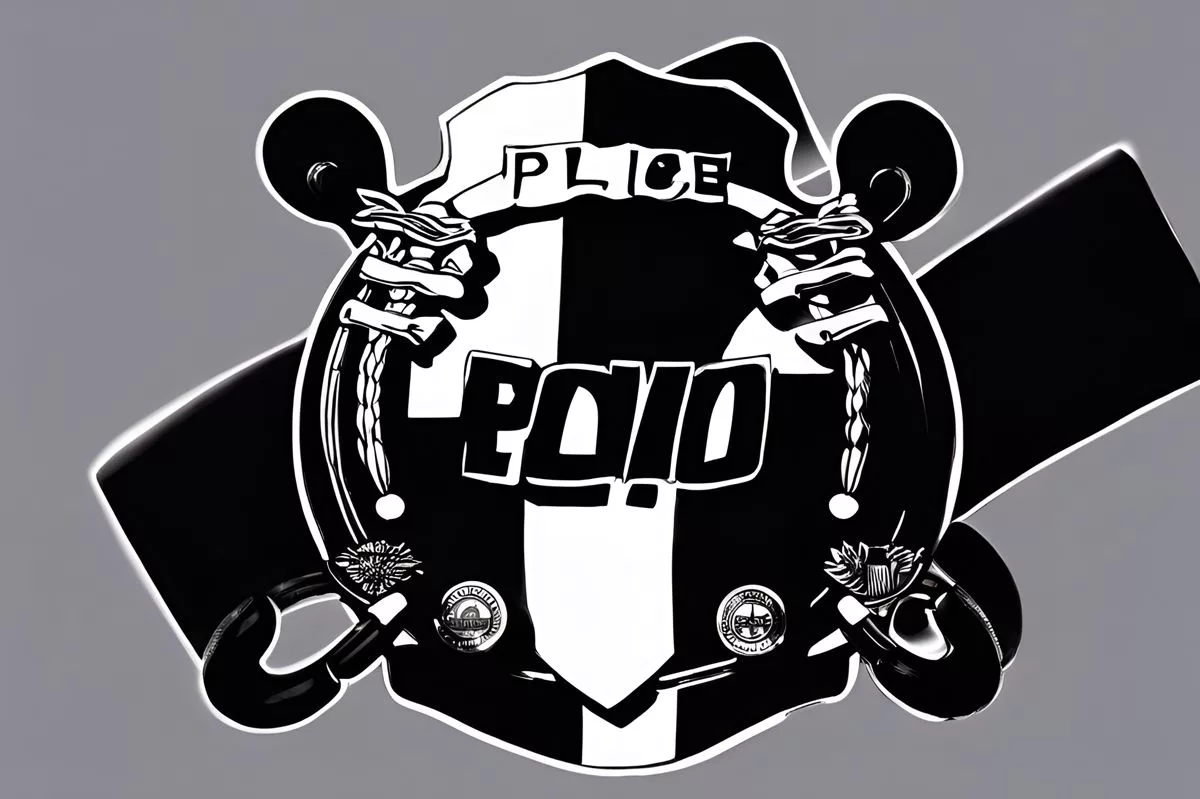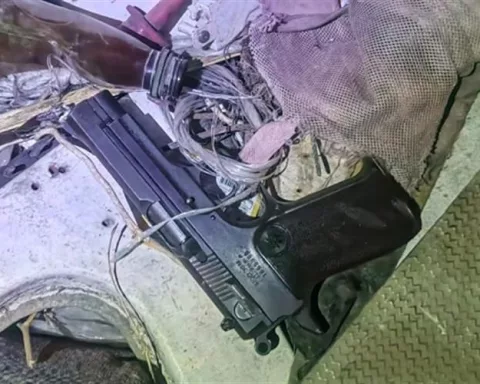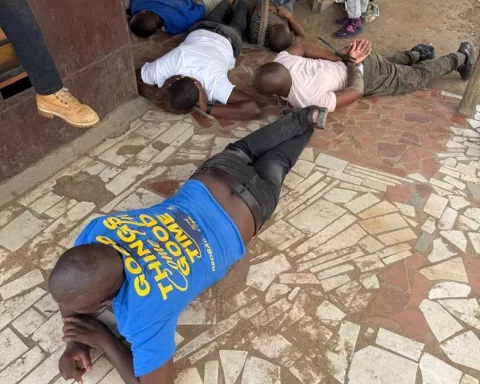In the quiet, scenic neighborhood of Llandudno, Cape Town, a shocking crime shook the community: police officers were caught robbing a house. The Western Cape Anti-Corruption Unit sprang into action, quickly arresting several officers involved in this betrayal of trust. As more evidence emerged, the investigation revealed a troubling pattern of corruption within the police. This incident serves as a reminder that even those meant to protect us can falter, but the fight for justice and integrity continues strong, aiming to restore faith in law enforcement.
What happened in the Llandudno corruption case?
In Llandudno, Cape Town, members of the police force were arrested for their involvement in a house robbery. The Western Cape Anti-Corruption Unit launched an investigation, leading to multiple arrests of officers, highlighting systemic corruption within law enforcement and the ongoing fight for integrity and public trust.
A Disturbing Revelation in Llandudno
In the usually peaceful neighborhood of Llandudno, Cape Town, a wave of unease swept through the community following the revelation of a house robbery. This was no ordinary crime; the culprits were none other than members of the police force, those entrusted with the duty to protect the public. The incident took place in the early hours of 14 September, shaking the community’s faith in law enforcement. Sunset Avenue, known for its beautiful views and serene environment, suddenly became the center of a chilling and complex story.
The first hint of trouble emerged when reports of the burglary reached the Hout Bay South African Police Service (SAPS). Recognizing the gravity of the situation, they quickly transferred the case to the Western Cape Anti-Corruption Unit, an elite team specialized in investigating corruption within the police ranks. This critical move marked the beginning of an in-depth investigation that would uncover unsettling truths about those who had sworn to uphold justice.
The Anti-Corruption Unit Takes Action
The Western Cape Anti-Corruption Unit, committed to eliminating corruption within law enforcement, launched a detailed probe into the robbery. Their investigation quickly bore fruit, leading to a series of arrests that highlighted the seriousness of the situation. The first arrest occurred on the day of the robbery itself. A 44-year-old sergeant was taken into custody at Belhar’s 35 Squadron at 4 pm. This arrest marked the start of a series of detentions that would unfold over the following days.
Just over an hour later, another breakthrough occurred. A 28-year-old constable was arrested at the Gugulethu SAPS, further demonstrating the Anti-Corruption Unit’s dedication to uncovering the truth. Both officers faced the Wynberg Magistrates Court on 17 September, each case meticulously examined for its role in the broader narrative of betrayal and criminal activity within the police force.
As the investigation progressed, more evidence surfaced, leading to additional arrests. On 19 September, a 33-year-old sergeant was apprehended by Bellville SAPS in the evening, as darkness fell. The exposure of his corrupt actions sent shockwaves through the law enforcement community, underscoring the vigilance required to maintain integrity within the police.
Unraveling the Web of Corruption
The investigation’s reach extended even further, ensnaring another suspect in its meticulous process. In the early hours, as dawn broke over Cape Town, a 38-year-old sergeant was detained at Philippi SAPS. Carelessly left fingerprints at the crime scene linked him directly to the robbery, serving as irrefutable evidence of his involvement. This oversight highlighted both the arrogance and recklessness that had characterized the entire incident.
In the wake of these arrests, Western Cape Provincial Commissioner Lieutenant General Thembisile Patekile stood resolute, emphasizing the critical importance of integrity within the police force. His statements carried a mix of stern condemnation and cautious optimism. Patekile commended the Anti-Corruption Unit for its relentless pursuit of the truth. He made it clear that the misuse of state resources for personal gain would not be tolerated, stating, “Let this serve as a warning to those who think they can abuse the resources of the state for their disgraceful purposes.”
The Broader Implications and Historical Parallels
This incident reflects a broader, global issue of corruption within police forces, echoing similar challenges faced in various countries during the late 20th century. Systemic corruption often met with public outrage, catalyzed movements for reform, and prompted a reevaluation of ethical standards and accountability in law enforcement. Each historical instance of corruption acted as a turning point, encouraging societies to strive for greater transparency and integrity within their institutions.
Despite the disheartening actions of a few, the investigation into this case shines a light on the resilience of the justice system. It underscores the ongoing commitment to eradicating corruption and restoring public trust. The arrests symbolize a significant moment of clarity, emphasizing that no one is above the law, regardless of their position or responsibilities.
Art and literature have long grappled with themes of corruption, justice, and redemption, reflecting society’s ongoing struggle with these issues. From Honoré de Balzac’s explorations of societal moral ambiguities to modern narratives, these themes continue to captivate the public imagination. They serve as a reminder that the fight against corruption is a perpetual challenge, yet it is also a fundamental aspect of the human experience.
Looking Forward: A Path to Justice and Rebuilding Trust
This particular case serves as a microcosm of a larger, ongoing struggle that societies worldwide must confront. The delicate balance between power, ethics, and accountability requires constant vigilance and an unwavering commitment to justice. As the legal process unfolds, the community watches closely, each court appearance and each piece of evidence representing a step toward resolution and restored trust.
The proceedings offer a chance for introspection and action, providing an opportunity to reinforce the values that bind society together. It’s a journey marked by both reflection and decisive action, aiming for a more transparent and accountable future.
In examining this incident, we are reminded of the dual nature of humanity—the capacity for both wrongdoing and redemption. This story, timeless and ever-relevant, urges us to reflect on the decisions that shape us and the society we strive to build. It is a poignant reminder that while corruption may be an enduring challenge, the pursuit of justice and integrity remains a defining aspect of our collective human experience.
FAQ: Unmasking Corruption in Llandudno
What crime occurred in Llandudno, Cape Town?
A shocking incident took place in Llandudno, where members of the police force were arrested for robbing a house. This betrayal of trust by those meant to protect the community has raised serious concerns about systemic corruption within the police.
How did the investigation start?
The investigation began when reports of the burglary were received by the Hout Bay South African Police Service (SAPS). Recognizing the gravity of the situation, the case was promptly transferred to the Western Cape Anti-Corruption Unit, an elite team specializing in investigating corruption within law enforcement.
What actions did the Western Cape Anti-Corruption Unit take?
The Western Cape Anti-Corruption Unit launched a thorough investigation into the robbery, resulting in multiple arrests. The first arrest occurred on the day of the robbery, with subsequent arrests made as evidence continued to surface, revealing a troubling pattern of corruption.
How many police officers were arrested?
Several police officers were arrested during the investigation. The first two arrests included a 44-year-old sergeant and a 28-year-old constable. Following them, additional arrests were made, including a 33-year-old sergeant and a 38-year-old sergeant, who was linked to the crime through fingerprints found at the scene.
What have law enforcement leaders said about this incident?
Western Cape Provincial Commissioner Lieutenant General Thembisile Patekile emphasized the critical importance of integrity within the police force. He condemned the actions of the involved officers and highlighted the relentless pursuit of truth by the Anti-Corruption Unit, warning that the misuse of state resources for personal gain would not be tolerated.
What are the broader implications of this case?
This incident not only highlights a specific case of corruption in Llandudno but also reflects a global issue within police forces. It serves as a reminder of the ongoing struggle for transparency, accountability, and integrity in law enforcement. The situation encourages society to remain vigilant in the fight against corruption while striving for justice and restoring public trust.












